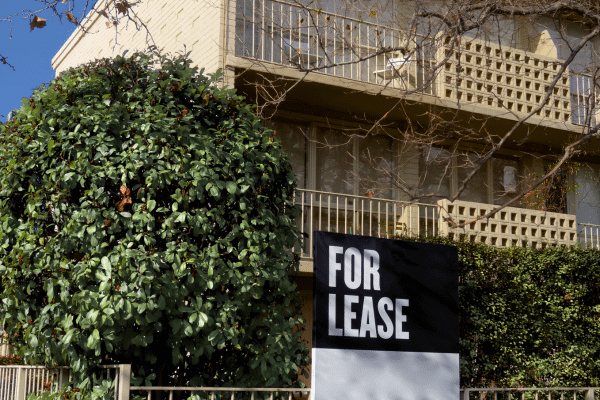Average housing rents across Australia have increased by about 10% per year to February 2023 for new rentals, and just a bit lower than that for existing rentals.
Combined with rapidly increasing interest rates and wage rises not keeping pace with inflation, this is placing huge strain on the average household purse, prompting calls for improved rental market conditions.
The Greens are refusing to pass the $10 billion Housing Australia Future Fund bill to provide more community housing unless the federal government supports the introduction of rent controls. But is a rent freeze a simple panacea?
Australia used rent controls effectively during the two world wars. However, they have been used in other countries without much success. Using basic economic principles, there is evidence freezes worsen inequality and actually reduce availability.
Making the market worse, not better
Rentals, in economic terms, are a product. To make a quality product for the market, the producer – the landlord – invests substantial sums of money in construction and maintenance to meet legislated minimum standards for rental properties. They also have to cover land and income tax, insurance and mortgage costs.
The rent from a property is expected to cover these expenses with an average return on investment between 3% and 7%. As soon as there is a rent freeze and the return on investment starts falling – in some cases into the negative – landlords will cut back on what they consider discretionary spending.
This can affect spending on maintenance because all other outlays are fixed. Houses are then allowed to fall into disrepair, leading to landlords selling up or withdrawing properties from the long-term rental market.
Experience in the United States shows how landlords allow some houses to become uninhabitable so they can fraudulently obtain insurance payouts for damage to the property.
Unscrupulous landlords will also try to bypass the minimum rental property standards by offering their properties at above-market rents, capitalising on the high demand and low stock.
Cashing in on the black market
Promoting rent-bidding above the fixed price will only worsen if there are government-imposed rent freezes. While rent bidding has been banned in some states including New South Wales and Victoria, anecdotally it remains widespread.
Then there is a grey area where real estate agents and landlords appear to adhere to the law by not asking for bids, but willingly accept offers above the advertised price from renters desperate to secure a property.

Given the difficulty in evicting renters, and rent freezes not covering costs, landlords might think a premium payment is justified. On paper, it would appear the rent being paid is reasonable and in accord with a government-imposed freeze.
But it also provides the landlord with untaxed cash. This flows on to the building sector where tradies will happily provide their services for cash, thereby expanding the black market.
The reasons for the property supply shortage are longstanding, and many of the causes were worsened by the COVID pandemic. These included material supply delays, increased costs and changes in preferred housing types. Government policies relating to the release of land and drawn-out approval processes for new builds have added to the supply problem.
Other unintended consequences
Battling families are further disadvantaged in the rental market because landlords would prefer to have their properties occupied by professionals with no children. Often, it is easier for owners to charge under-the-table premiums to this cashed-up group prepared to pay to get a particular property.
This increase in social segregation has been reported in Britain, where landlords choose renters from their preferred social and economic cohort. This increases the waiting times for “rent frozen” properties, forcing desperate individuals – usually those already most disadvantaged – to rent illegally through the black market.
This worsens the divide between the wealthy market-insiders and unemployed, migrant, young and other disadvantaged renters. The resulting lack of available rentals worsens worker shortages in some areas and can create pockets of increased violence and crime spawned by uncontrolled hidden black markets.
While freezing rents would appear to be a simple method to increase rental housing affordability, the unintended consequences of any such move will have a long-term negative impact on the total availability of rental housing stock, reducing the quality of housing and increasing a black market in rental housing.
Global experience suggests that improving supply, by easing building restrictions and scrapping red tape for new developments, is likely to be a more effective policy tool in Australia. Local councils and state governments need to simplify and expedite the process for approving new developments at the same time as reducing taxes on rental properties, both during construction and later.
This article was first published in The Conversation
About the author: Senior Lecturer in Finance at Deakin University
Read more: Significant changes coming in effect from July 1, 2023





